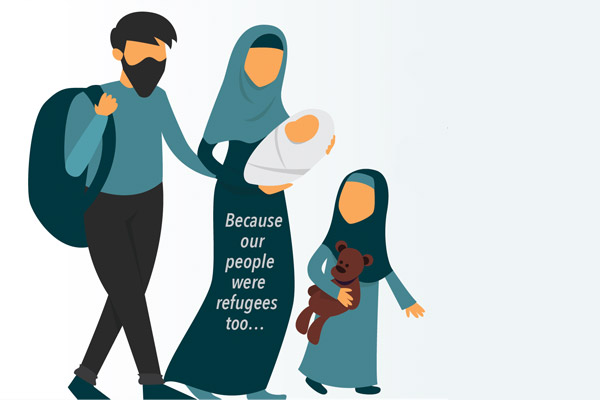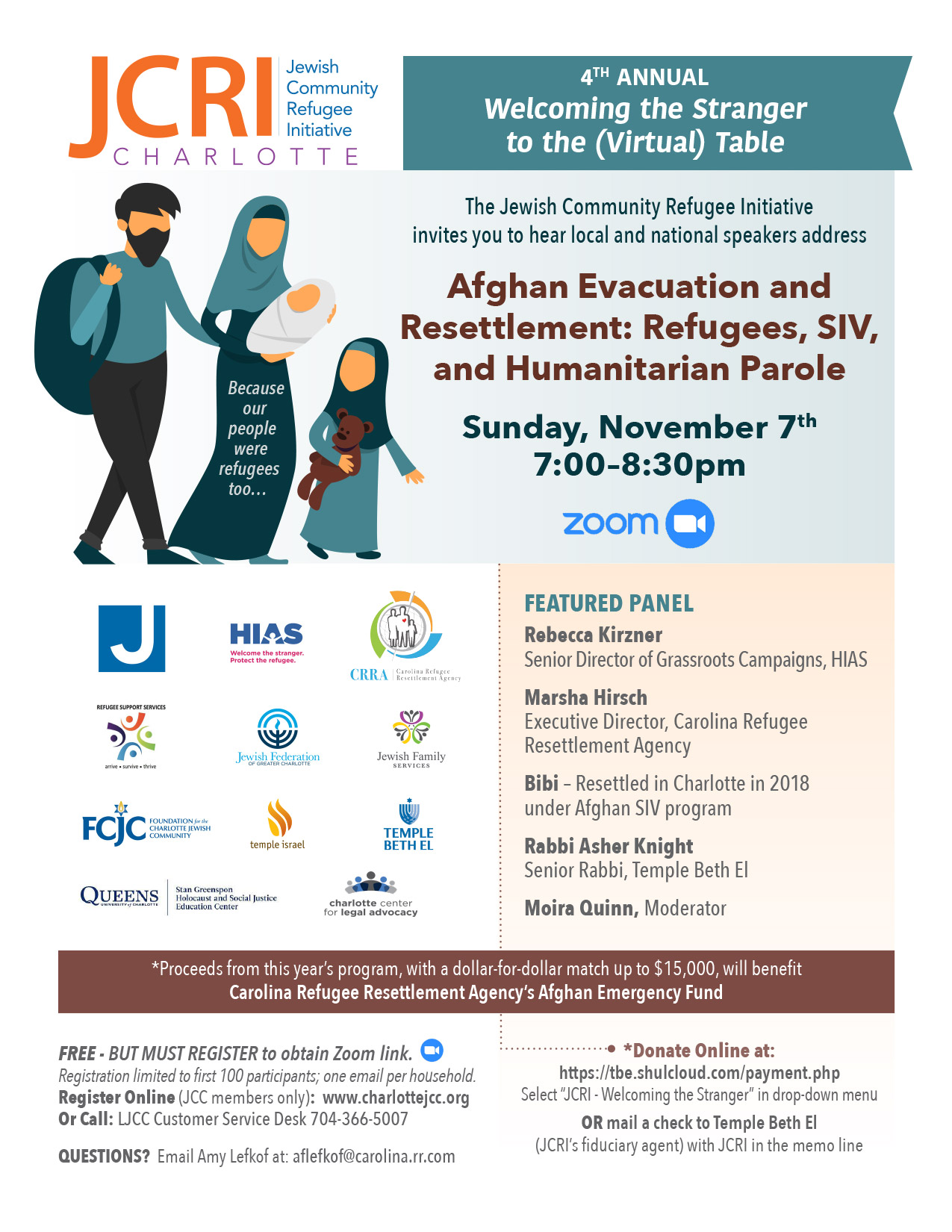
Giving Thanks and the Festival of Lights: Two Holidays Come Together
Giving Thanks and the Festival of Lights: Two Holidays Come Together
The first night of Hanukkah begins in November this year, just three days after Thanksgiving. They are two separate, unrelated holidays celebrated for different reasons with unique traditions, but when you think about it, they actually have a great deal in common.

Charlotte Jewish News November 2021
By Julie Loftis
The first Thanksgiving meal was a celebration among colonists and Indigenous Americans, an event commemorating the end of a successful harvest despite fighting the harsh winter and widespread disease. Pilgrims in attendance, many of whom had sought refuge in the new land to escape religious persecution, were able to enjoy religious freedom.
According to Tzvi Freeman on Chabad.org, “That’s Hanukkah, as well: a narrative deeply embedded in the collective Jewish psyche of how we fought back against religious oppression in our own land, earned our freedom, and thanked G-d for the miracles.”
Today we celebrate the warmth of the season of overcoming obstacles and focusing on gratitude during the Thanksgiving meal and lighting of menorahs.
Lighting the menorah commemorates the miracle of the oil that lasted eight days instead of one. Hanukkah, also known as the Festival of Lights, reminds us to bring light into dark, hope where there had been none. We can symbolically spread light in our community by carrying out our task of tikkun olam, repairing the world. Our world can be transformed by kindness. However, during a holiday season when giving thanks is the norm, Jewish Family Services (JFS) is responding to the needs of those who have a hard time seeing the light or finding thankfulness in their world.
During this holiday season, JFS works hard to not only respond to people’s day-to-day challenges but also to ensure that members of our community who are struggling can also enjoy some of the holiday traditions many of us take for granted. It is also when we rely on those who want to help support our efforts. Below are just a few ways that you can help JFS provide individuals and families with the opportunity to celebrate the miracle of the Festival of Lights or truly give thanks over a Thanksgiving meal and meet the ongoing needs of our community.
Donate to the food pantry: Food is a must for any holiday! During this time of year, we stock up the pantry to make sure everyone in our community has the necessary supplies to “fix all the trimmings” for a holiday meal and that nobody goes hungry.
Grocery gift cards: For some families, purchasing a traditional Thanksgiving turkey dinner could mean not paying a utility bill or purchasing gas for their car. For Thanksgiving, JFS supplements food pantry orders with gift cards to allow families to enjoy the traditional Thanksgiving dinner. Gift cards ranging from $10 to $50 can help families with needs ranging from purchasing just the turkey to those who need help with the full meal.
Dreidel Drive (October 11-November 10): Help us bring connections, smiles, and light to children, grandparents, seniors, and survivors to celebrate this joyous holiday. Participation is easy — purchase a gift card, indicate the amount on the gift card, and turn it in to JFS. Preferred gifts cards include Target, Walmart, grocery stores, or Amazon (hard copy, no digital gift cards, please).
Family to Family Annual Campaign: While the holiday season may last a couple of months, the needs of our community last throughout the year. Our Family to Family campaign is a major source of funding that ensures we can meet the needs of those in our community affected by issues such as mental health, aging, food and financial insecurity, and family violence all year long.
Volunteer your time: JFS has a variety of opportunities, including helping the food pantry, visiting seniors, assembling and/or delivering birthday bags or holiday bags, and many other ways you can contribute your time.
To get more information on any of these opportunities to support our community, please visit our website at www.jfscharlotte.org or call us at (704) 364- 6594. Donations and gift cards can be mailed to Jewish Family Services, 5007 Providence Rd., Suite 150, Charlotte, NC 28226.






